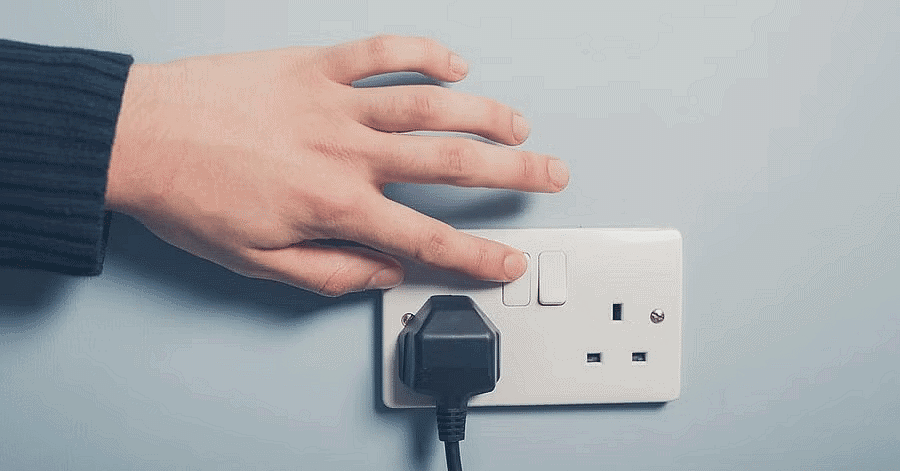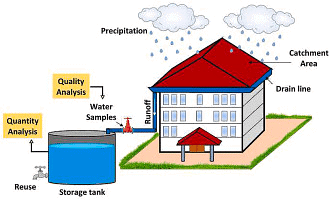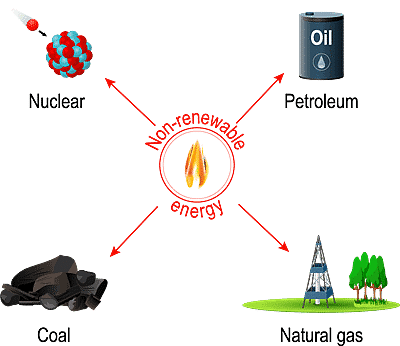NCERT Solutions for Class 10 Science - Management of Natural Resources
| Table of contents |

|
| Page No. 271 |

|
| Page No. 275 |

|
| Page No. 278 |

|
| Page No. 280 |

|
Page No. 271
Q1: What changes can you make in your habits to become more environment-friendly?
Ans: We should switch off the electrical appliances when not in use. Water and food should not be wasted. Close the tap when not in use. Dump the objects made of plastic and glass in designated recycling boxes. Plastic, paper, or glass must be recycled or reused and not dumped with other wastes.

This is because objects made of plastic do not get decomposed easily. Besides soil fertility, they badly affect our environment. We should dispose of the wastes safely and not disperse them in public places. These are a few things that can be done to become more environment friendly.
Q2: What would be the advantages of exploiting resources with short-term aims?
Ans: There should be judicious use of natural resources as they are limited in nature. We should not exploit resources for our short term gains as this would only lead to depletion of natural resources for the present generation as well as generations to come. Hence, we can say that there are hardly any advantages of exploiting natural resources for short term gains.
Q3: How would these advantages differ from the advantages of using a long-term perspective in managing our resources?
Ans. In the case of a long-time perspective in managing our resources, these resources will last for generations to come. This management ensures uniform distribution among the people. It conserves the natural resources for many years and not just for a few years, as in the case of a short-term perspective in conserving natural resources.
Q4: Why do you think there should be equitable distribution of resources? What forces would be working against an equitable distribution of our resources?
Ans: Natural resources of the Earth must be distributed among the people uniformly so that each and everyone gets his share of the resource.
Human greed, corruption, and the lobby of the rich and powerful are the forces working against an equitable distribution of resources.
Page No. 275
Q1: Why should we conserve forests and wildlife?
Ans: We should conserve forests and wildlife to preserve biodiversity (a range of different life-forms) so as to avoid the loss of ecological stability. A large number of tribes are the habitats in and around the forests. 
If the forests are not conserved, then it may affect these habitats. Without proper management of forest and wildlife, the quality of soil, the water sources, and even the amount of rainfall may be affected. Without forest and wildlife, life would become impossible for human beings.
Q2: Suggest some approaches towards the conservation of forests.
Ans: Some approaches towards the conservation of forests are as follows:
- People should show their participation in saving the forest by protesting against the cutting of trees. For example, Chipko Andolan
- Planting of trees should be increased. The rate of afforestation must be more than that of deforestation.
- Some people cut precious trees such as Chandan to earn money. Government should take legal steps to catch these wood smugglers.
- Habitants of forests must not be bothered by the forest officials. Otherwise, this would result in the clash between tribal people and the government officials, thereby enhancing the naxal activities in forests
Page No. 278
Q1: Find out about the traditional systems of water harvesting/management in your region.
Ans: One of the traditional systems of water harvesting used in our region is tanks.
- Rainwater harvesting is quite a simple process or technology used to conserve rainwater by collecting, storing, conveying, and purifying rainwater that runs off from rooftops, parks, roads, open grounds, etc. for later use.
- The method of rainwater harvesting involves the collection and storage of rainwater with the help of artificially designed or modified systems that break out natural or man-made catchment areas like- the rooftop, compounds, rock surfaces, hill slopes, and artificially repaired impervious or semi-pervious land surfaces
 Q2: Compare the above system with the probable systems in hilly/mountainous areas or plains or plateau regions.
Q2: Compare the above system with the probable systems in hilly/mountainous areas or plains or plateau regions.
Ans: In plains, the water harvesting structures are crescent-shaped earthen embankments. These are low, straight, and concrete.
In hilly regions, the system of canal irrigation called Kulhs is used for water harvesting. This involves a collection of rainwater in a stream, which is then diverted into man-made channels down the hillsides.
Q3: Find out the source of water in your region/locality. Is water from this source available to all people living in that area?
Ans: The source of water in our region is groundwater. Water from the source is available to all the people living in that area.
Page No. 280
Exercises
Q1: What changes would you suggest in your home in order to be environment-friendly?
Ans: Changes that can be undertaken in our homes to be environment-friendly are listed below:
- Switch off the electrical appliances when not in use.
- Turn the taps off while brushing or bathing and repair the leaking taps.
- Throw biodegradable and non-biodegradable waste into separate bins.
- Construct composting pits.
- Food items such as jam, pickles, etc., come packed in plastic bottles. These bottles can later be used for storing things in the kitchen.
Q2: Can you suggest some changes in your school which would make it environment-friendly?
Ans: Changes that can be undertaken in our schools to make it environment-friendly are listed below:
- Electricity can be saved by switching off lights and fans when not required.
- Turn the taps off when not in use.
- Biodegradable and non-biodegradable wastes should be thrown into separate bins.
Q3: We saw in this chapter that there are four main stakeholders when it comes to forests and wildlife. Which among these should have the authority to decide the management of forest produce? Why do you think so?
Ans: The forest department of the government should have the authority to decide the management of forest produces. This is because the forest department is the caretaker of the forest land and is responsible for any damage to the forest.
Q4: How can you as an individual contribute or make a difference to the management of
(a) forests and wildlife
(b) water resources and
(c) coal and petroleum?
Ans:
(a) Forest and wildlife:
We should protest against the cutting of trees (deforestation).
- We should protest against the poaching of wild animals.
- We should stop the annexation of forest land for our use.
(b) Water resources:
- Turn the taps off while brushing or bathing and repair leaking taps.
- We should practice rainwater harvesting.
- We should avoid the discharge of sewage and other wastes into rivers and other water resources.
(c) Coal and petroleum:

- We should take a bus or practise carpooling to avoid excessive use of petroleum.
- We should stop using coal as a fuel (antithesis).
- We should use alternative sources of energy such as hydro-energy and solar energy instead of depending largely on coal and petroleum.
Q5: What can you as an individual do to reduce your consumption of the various natural resources?
Ans: Natural resources such as water, forests, coal and petroleum, etc. are important for the survival of human beings. The ways in which we can reduce the consumption of various natural resources are as follows:
- We should stop the cutting of trees (deforestation).
- We should use recycled paper to reduce the cutting down of trees.
- We should not wastewater.
- We should practice rainwater harvesting.
- We should practise carpooling to avoid the excessive use of petroleum.
- We should use alternative sources of energy such as hydro-energy and solar energy.
Q6: List five things you have done over the last week to −
(a) conserve our natural resources
(b) increase the pressure on our natural resources
Ans:
(a) To conserve our natural resources:
- Travel by a CNG bus for long distances and walk for short distances.
- Use recycled paper
- Throw biodegradable and non-biodegradable waste into separate bins
- Plant trees
- Harvest rainwater
(b) To increase the pressure on our natural resources:
- Use non-renewable resources of energy
- Wastewater
- Waste electricity
- Use plastics and polythene bags for carrying goods
- Use escalators
Q7: On the basis of the issues raised in this chapter, what changes would you incorporate in your lifestyle in a move towards sustainable use of our resources?
Ans: One should incorporate the following changes in lifestyle in a move towards sustainable use of our resources:
- Stop cutting trees and practise plantation of trees.
- Stop using plastic and polythene bags for carrying goods.
- Use recycled paper.
Throw biodegradable and non-biodegradable waste into separate bins. - Waste minimum amount of water while using and repair leaking taps.
- Practice rainwater harvesting.
- Avoid using vehicles for short distances. Instead, one can walk or cycle to cover short distances. To cover long distances, one should take a bus instead of using personal vehicles.
- Switch off electrical appliances when not in use.
- Use fluorescent tubes in place of bulbs to save electricity.
- Take stairs and avoid using lifts.
- During winters, wear an extra sweater to avoid using heaters.
|
166 videos|400 docs|282 tests
|
FAQs on NCERT Solutions for Class 10 Science - Management of Natural Resources
| 1. What are natural resources? |  |
| 2. How can we manage natural resources sustainably? |  |
| 3. What are the consequences of overexploitation of natural resources? |  |
| 4. How does sustainable management of natural resources benefit the environment? |  |
| 5. What are some examples of sustainable practices for managing natural resources? |  |
|
166 videos|400 docs|282 tests
|

|
Explore Courses for BPSC (Bihar) exam
|

|













